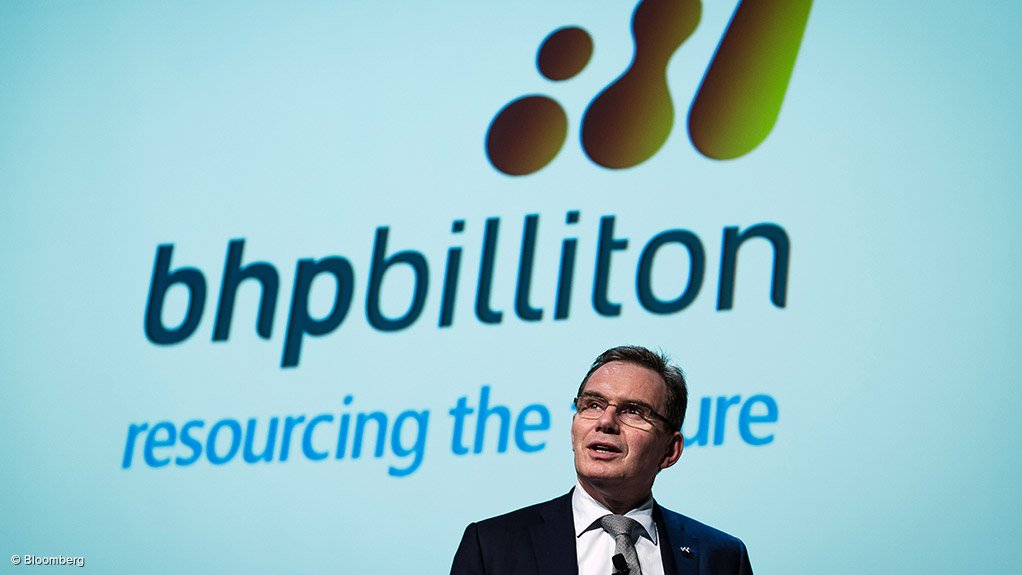
BHP CEO Andrew Mackenzie
Photo by: Bloomberg
PERTH (miningweekly.com) – Mining giant BHP Billiton on Tuesday revealed new unit costs for its remaining divisions in the wake of the demerger of South32.
“In recent years, we have made great strides towards becoming the most efficient supplier of our chosen commodities and secured productivity gains of nearly $10-billion. We believe we can go even further with a simpler portfolio and improve margins by reducing costs more deeply than the competition,” CEO Andrew Mackenzie said from Barcelona.
The shareholders of BHP last week approved the demerger of South32, which will result in BHP spinning out its aluminium, coal, manganese, nickel and silver assets.
Mackenzie said on Tuesday that the divestment of South32 would potentially deliver substantial benefits to BHP’s remaining operations.
Unit costs at the miner’s Western Australian iron-ore operations were now expected to be reduced by 21%, to some $16/t during the 2016 financial year. This was well below the $20/t figure put forth by the company during March this year.
Unit costs at the Escondida copper operation, in Chile, would also fall by 16% on a grade adjusted basis, while drilling cots per well in the Black Hawk petroleum licence, in the US, would average $2.9-million, a reduction of 20%.
Mackenzie said that capital and exploration expenditure for 2016 was also expected to fall to $9-billion, down from the $12.6-billion reported in 2015.
He said that the reduction reflected ongoing improvements in capital productivity along with the deferral of some shale developments and the Inner Harbour debottlenecking project, in Western Australia.
The miner would spend some $1.5-billion during 2016 on its onshore US business, to support a development programme with ten operated rigs.
“We will continue to invest in our high quality projects to create long-term value and support dividend growth. The iron-ore and metallurgical coal markets are currently well supplied and we do not expect to invest significantly more in these businesses at this time,” Mackenzie added.
Instead, he said, BHP’s capital focus would be on commodities the company believed would have attractive supply fundamentals.
“We believe grade decline in copper, and field decline in oil, will constrain industry production and support a recovery in prices over the medium-term. The potash industry has largely exhausted brownfield expansion options and new greenfield supply will be required.
“Our diverse portfolio of growth options will allow us to select the markets in which we can create the most value,” Mackenzie said.